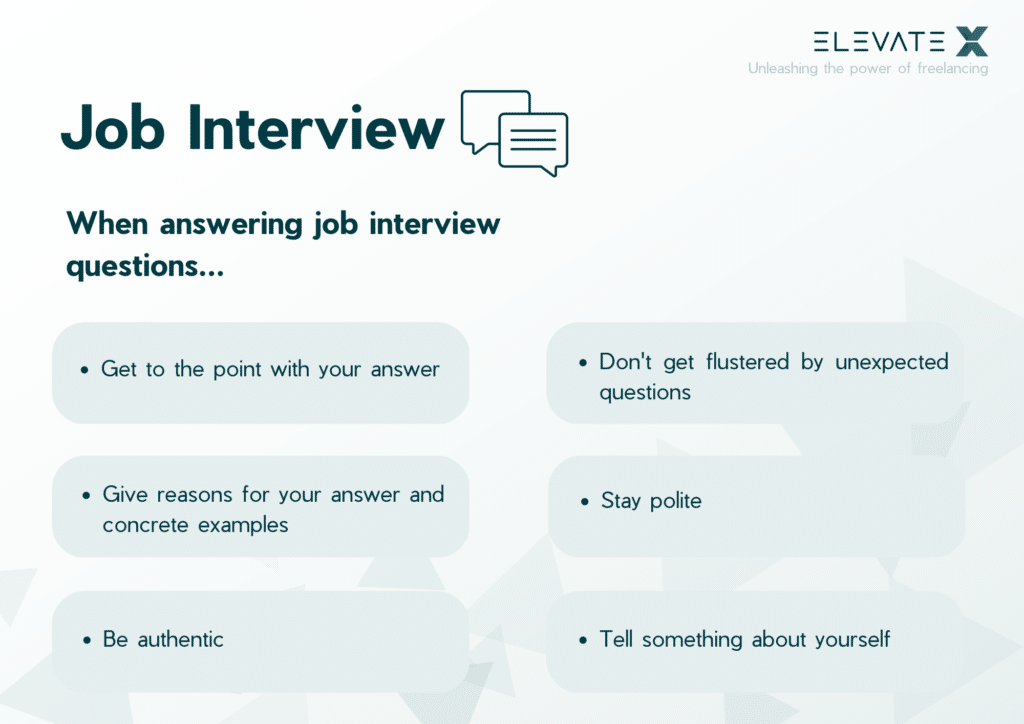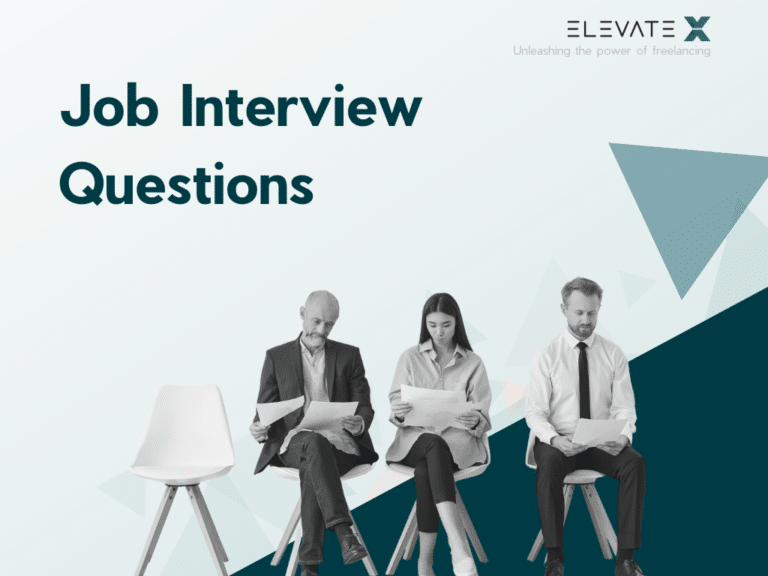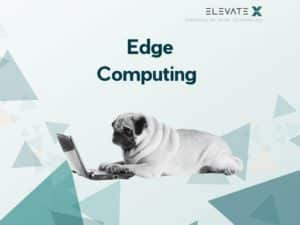The new employer was already able to get an idea of your professional skills in your application. At the interview, they want to get to know you better and find out whether you fit the advertised position, the team and the company itself.
Various questioning techniques are used in job interviews. HR managers use different questioning strategies to find out whether an applicant is a good fit for the company and the team. You can prepare some possible answers to the most common questions with examples (e.g. your strengths and weaknesses), but you should not memorize your answers word for word.
Types Of Interview Questions
No two job interviews are alike. However, every interview has a basic flow that is always the same. Also, certain types of questions occur in almost every job interview. We’ll tell you what they are below.
Information Questions
Information questions are usually short and precise. The goal is to obtain specific information from the applicant and get a better picture of them. For example, employers may ask why the job is interesting to the applicant or what they like to do in their spare time.
Alternative Questions
In alternative questions, HR professionals present the applicant with a choice between two alternatives. If neither of the two alternatives applies, applicants can say so honestly and describe their perspective on the facts. Only the reference to the advertised position is important.
Projective Questions
With a projective question, the recruiter wants the applicant to put himself in another person’s shoes and answer from that person’s perspective. This has a psychological background: It is much more difficult for us to talk about ourselves than about others. By asking the applicant to slip into the role of another person, the recruiter hopes for an honest answer. Personnel managers will use this type of question if they have the feeling that the applicant is holding back or pretending.
Multiple Questions
Either the personnel manager asks several questions at once or he strings together several statements in one long question. In this way, they want to test the applicant’s attention and ability to concentrate. Applicants should not be put off by this and do not have to answer every partial question.
Counter-questions and Rhetorical Questions
With counter-questions, the recruiter wants to obtain further information about a question that has already been asked, to reassure himself or herself, or to avoid misunderstandings. Applicants can use counter-questions to gain time if they cannot immediately think of a good answer to a question. Rhetorical questions are remarks rather than questions. The recruiter does not expect an answer to such a question. He wants to use it to lighten the atmosphere or liven up the conversation.
Suggestive Questions
With suggestive questions, recruiters want to steer applicants in a certain direction. Some leading questions are so well disguised that they are not recognizable as such at first glance. For example, the HR manager may ask when the applicant had his or her last job interview. This implies that he or she has already been through several interviews. Caution is called for here, because the personnel officer may want to deliberately lead the applicant up the garden path. To questions such as “Surely you also think that honesty is the most important thing when dealing with colleagues?”, the answer needs to be well thought out. One possibility would be: “That depends. Too much honesty can sometimes hurt. When dealing with each other, you always need some diplomacy, too.”
Provocative Questions
Provocative questions are intended to unsettle the applicant. What is important to the personnel manager here is not the applicant’s actual answer, but his or her reaction. Ideally, the applicant should remain calm, composed and confident.
Motivational Questions
With a motivational question, personnel managers want to find out what makes an applicant tick. In this case, the recruiter suggests interest in the applicant’s point of view. To this end, he or she might send praise in advance for achievements to date. The goal is to find out whether the applicant will fit into the team.
Trick Questions
Trick questions or indirect questions sound harmless at first. These questions aim to obtain information that the applicant would not provide if asked directly. Or an important aspect was forgotten in the job advertisement – such as the willingness to work overtime. In this case, the HR manager can ask indirectly what the applicant thinks about this.
Shock Questions
Shock questions are part of stress interviews. These are questions that the applicant does not expect and that can also be insulting. The HR manager wants to test how applicants deal with pressure and stress. They should remain confident and give thoughtful answers.
KEY POINTS
- Various questioning techniques are used in job interviews.
- Certain types of questions occur in almost every job interview.
- It works best at the interview if you do not memorize possible answers and rattle them off.
- However, it doesn’t hurt to think about answer strategies for some of the possible difficulties.
Formulating Answers Correctly at the Job Interview
It works best at the interview if you do not memorize possible answers and rattle them off. However, it doesn’t hurt to think about answer strategies for some of the possible difficulties. It is also always good to ask smart questions yourself.
In general, when answering job interview questions:
- Get to the point with your answer
- Give reasons for your answer and concrete examples
- Be authentic
- Don’t get flustered by unexpected questions
- Stay polite
- Tell something about yourself
Are you looking for exciting projects? Through the ElevateX community, you will receive the most attractive offers.

STAR Method for Answers in Job Interviews
The STAR method is a special interview technique to find out more about an applicant. Recruiters hope this behavior-based interview will provide an accurate assessment of applicants. The STAR method is based on the belief that past behavior predicts future behavior. In this way, HR professionals want to explore applicant behaviors and skills that are relevant to the job ahead.
In a structured setting, the recruiter asks questions until the applicant gives him or her an authentic answer. This creates a stressful situation for the applicant. The assumption is that it is difficult for people to pretend or invent untruths when asked about a specific situation from their past. Applicants should structure their answers according to the STAR method:
- Situation: What was the initial situation?
- Task: What was the task?
- Action: What did the applicant do?
- Result: What was the result?
Examples of STAR questions:
- When was the last time you failed?
- What did you learn from that experience?
- Have you ever reached your absolute limits?
- How did you deal with this?
- Have you ever had to adapt to an unfamiliar or difficult situation? Tell me about it.
As an Employer, What Questions Should You Ask In An Interview?
Do you want to find out if a candidate is a good fit for your company?
The following interview questions can help you:
- How have you prepared for today’s appointment?
- Why do you want to change companies?
- What is your current boss like?
- What was the craziest thing you have done in your life so far?
- What does success mean to you?
- What kind of failure is particularly hard for you?
- Let’s talk about a difficult situation at your last job. How did you deal with it?
- What do you think motivates people: Salary, career, ambition, vocation, flexible work hours, or something else?
- What do you think makes a really good performance possible?
A concise overview of typical job interview questions is available here.
Here’s how to successfully work with freelancers as an employer.
And here we tell you how to find the right freelancer for your project in the first place.
Are you looking for a Freelancer?
Look no further.
List Of The 9 Most Common Questions and Answers
1. "What Can You Tell Us About Yourself?"
Answering strategies:
It is important to avoid wordy phrases and to support your skills with examples. Mentioning things that are relevant to the job and that you can do better than others is essential. You can find out what is convincing in a job interview from an entrepreneur’s point of view here.
What is meant by the question:
HR professionals want to find out if the applicant´s profile fits the requirements.
The appropriate answer:
“I am Max Mustermann and 35 years old. In the last three years, I have been working as a salesperson at company XY. During this time, I was able to increase the company’s sales by around two million a year. I would like to use my skills in your company to develop myself further.”
2. "What Sets You Apart From Other Applicants?"
Response Strategies:
Use this opportunity to present yourself. Focus on those of your skills that are relevant to the position. Mention the practical experience and expertise that you can bring to the position.
What is meant by the question:
The recruiter wants to find out if you’re right for the job.
The appropriate response:
“Your job ad indicated that you are looking for a person with many years of sales experience. I bring this experience with me. In my last job, I worked in sales for seven years, the last two of them in a management position.”
3. "Why Do You Want A Job Change?"
Response Strategies:
Always respond positively to such questions and never criticize your last employer. Frame your desire for a job change in a positive way and talk about the direction you would like to move in.
What is meant by the question:
Recruiters are looking for professionals who are passionate about your company, brand or product. It’s also interesting for them to hear how you talk about your last employer and whether you have the necessary size and diplomacy here.
The appropriate response:
“I am very grateful for the experience I was able to gain at my last employer. I was able to expand my skills there and learned a lot for my career path. Your company’s products have been with me since I was little. Now I’m looking forward to being able to use my skills in your company and advance the products that are part of my life myself.”
4. "What are your salary expectations?"
Response strategies:
If you haven’t mentioned salary expectations in your application yet, you should think about them before the interview at the latest. Do some research to find out what the average salary is for the position you are seeking. It’s best to give a figure that still leaves you room for negotiation. You can meet the company’s expectations with a 10% surcharge. You can find out the best way to negotiate as a freelancer here.
What is meant by the question:
Employers want to find out if you can realistically assess your value and if you are at the right professional level. They also only have a certain budget for the advertised position.
The appropriate response:
“My salary expectations are between 50,000 and 60,000 euros gross per year.”
5. "What Are Your Weaknesses?"
Response Strategies:
Answer honestly, with a realistic self-assessment. Always expand your answer with information about what you are doing to overcome this weakness.
What is meant by the question:
HR professionals want to find out if an applicant is self-critical and if they can deal with their weaknesses honestly and constructively.
The appropriate answer:
“I find it difficult to speak up in large rounds. I try not to be the center of attention. However, I’ve noticed that this gives me a wasted opportunity to put forward my suggestions. So I’m working hard to become more confident and speak my mind.”
6. "How Do You Respond To Criticism?"
Response Strategies:
Show with your response that you see criticism as an opportunity for personal growth. Make it clear that you are grateful for the advice and not resistant to advice.
What is meant by the question:
HR professionals want to find out if you are sympathetic and can integrate well into a team.
The appropriate response:
“Criticism allows you to get better. I am always grateful for the feedback and don’t take it personally. For example, I’ve already been able to refine my presentation techniques based on advice from colleagues.”
7. "Where Do You See Yourself In Five Years?"
Response Strategies:
Demonstrate that you have a career plan and specific goals for your personal development. Make it clear that you see your future in the company for the long term. In your answer, don’t forget to give examples from your professional life that demonstrate your strengths.
What is meant by the question:
HR professionals are looking for motivated and talented employees who will ideally stay with the company for as long as possible.
The appropriate answer:
“I am looking for a company in which I can develop professionally, but also personally. Different challenges that allow me to grow in different areas are therefore very important to me. My goal is also to take on personnel responsibility in the next few years. I think that goes particularly well in an organization like yours that is constantly developing.”
8. "Where Do You See Your Strengths?"
Response Strategies:
Show the recruiter that your profile fits the advertised position. Refrain from empty words and back up your strengths with examples. Focus specifically on the things you can do better than others. If you are a freelancer, you can focus on your previous achievements in project work.
What is meant by the question:
On the one hand, the recruiter wants to know whether you fit the advertised position. On the other hand, he also wants to get a feel for where the focus of your activities might lie in the future.
The appropriate answer:
“I’m very good at organizing, whether it’s project work or large events. In my last job, I organized a conference for 300 people for a large client. It’s easy for me to keep an overview and coordinate everything.”
9. "How Do You Motivate Yourself?"
Response Strategies:
Again, it’s not enough to just assert your motivation. Use stories from your professional life to show you can motivate yourself.
What is meant by the question:
A motivated worker performs better and ensures that company goals are met. Therefore, employers need to ensure that their employees have enough drive in the long run. Here we will tell you how to become a successful IT freelancer.
The appropriate answer:
“The biggest motivation for me is the results of my work. When I see that I’ve done something well, it makes me want to tackle more challenges and, if possible, improve myself.”
You can find more job interview questions here.
During the interview, HR professionals like to use the following questioning techniques:
- Information questions
- Alternative questions
- Projective questions
- Multiple questions
- Suggestive questions
- Provocative questions
- Motivating questions
- Trick questions
- Counterquestions and rhetorical questions
- Shock questions
Ask a job candidate questions that cover the following topics:
- the job
- the company
- the qualifications of the candidate
- the motivation of the candidate
- his soft skills and personality
- his handling of criticism and change
Answer as honestly and reflectively as possible. Show your counterpart that you are aware of your weaknesses, deal with them and can talk about them confidently. Mention that you are in the process of finding solutions and working on yourself.








